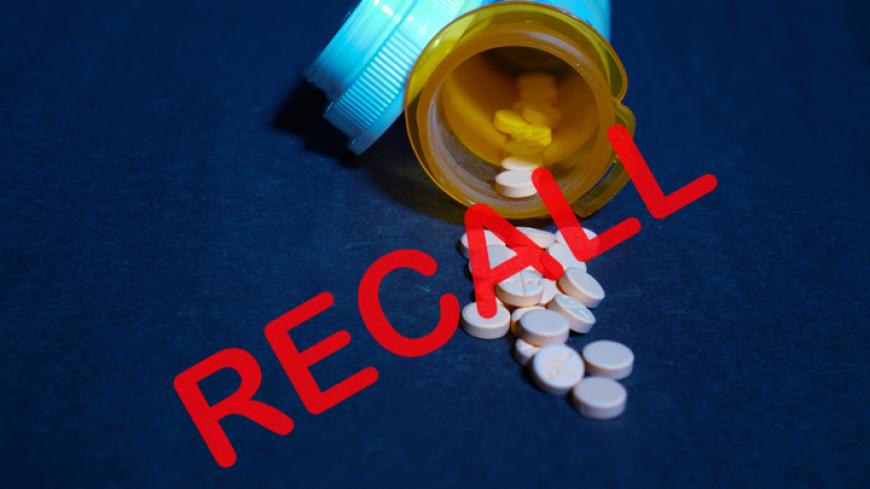Understanding FDA Drug Recalls

When it comes to recalling drugs or other medical products, the stakes are often very high. Many medications are critical to the health of those taking them, and often the specific medication someone takes has no substitution or replacement.
Drug manufacturing is a trillion-dollar global industry built around a uniquely expensive development process. It takes more money to develop, test, and get a drug approved by national drug regulators than almost any other kind of product.
The combination of these factors means the manufacturer’s decision to recall a drug is not made lightly. It may often be a national drug regulator – like the U.S. Federal Food and Drug Administration (FDA) – ordering the recall. So why and how does a drug recall happen?
Why A Drug Is Recalled
A drug will be recalled if evidence comes to light that it is either unsafe or ineffective. The question then becomes: how do you define those terms? In short, the drugs are discovered to be less effective and/or more potentially dangerous than understood by the manufacturer or the FDA at the time the drug was approved.
Many drugs don’t work perfectly all the time and may come with serious side effects as well as the potential to cause severe damage in a minority of cases. But at the time a drug is approved, its level of effectiveness and its potential to cause harm is supposed to be well understood. If it turns out that the FDA and the manufacturer were unaware of potential risks or ineffectiveness, that can be grounds for a recall.
There can be many reasons why a drug that passed through the testing and FDA regulation process might be less effective or safe when out in the real world. Maybe the testing process was flawed, it can be due to the complicated nature of the drug manufacturing and distribution process.
The complications start with the actual manufacturing. That’s because more than 80% of the medications Americans take are manufactured or contain a component manufactured in China or India — a measure that keeps costs down. While most of the time outsourcing results in a properly-made product, the quality standards in those countries, and the logistics involved in importing and distributing them, can lead to issues.
Quality-wise, manufacturers in China and India are often held to a lower quality standard by local regulators, and the geographic distance can make it difficult for drug companies to conduct effective oversight. Because of this, you may find critical components of drugs simply don’t work, or may be contaminated by dangerous substances or chemicals.
Also, drug importation can often lead to mislabeling of products. This means that a patient may end up with a completely different drug or dosage marked with the label of what they were prescribed.
We end up with a drug company, doctor, pharmacist, and patient who all think they understand the benefits and risk of a given drug but are mistaken because there was an error in the testing process, or there were quality control or mislabeling issues in the manufacturing and distribution process.
Unfortunately, these errors are usually only discovered after real-life patients suffer the consequences.
How A Drug Is Recalled
Once these issues come to light, the process can play out in one of two ways: A voluntary recall, or a mandatory recall.
In a voluntary recall, the manufacturer learns that their drug doesn’t work the way it’s supposed to. In response, they alert doctors, pharmacies, and patients, and work to get all stock of the drug already in distribution taken off the shelves and brought back to their facilities where they can either be destroyed or re-engineered to be safe/effective. Patients are instructed to stop taking the drug, talk to their doctor about other options, and safely destroy all stock of the drugs they already have.
In a mandatory recall, the exact same thing happens: However, it’s the FDA making the manufacturer recall their drug after they chose not to do so on their own. The manufacturer may not agree with the FDA that the drug is ineffective or unsafe, or it may benefit them more as a corporation to keep the product on the shelves.
In all cases, the FDA will alert the public about the recall, whether in an individual announcement or as part of their weekly recall alert.
What To Do If Your Medication Is Recalled
According to a report by Kaiser Health News, more than 8,000 drugs have been recalled by manufacturers, either voluntarily or through FDA mandate. If you or a loved one are taking a drug that’s been recalled, here’s what you should do:
- Talk to your doctor. If you can’t take this medication anymore, you are likely going to need an alternative treatment plan. Don’t go shopping for solutions on your own; talk to your doctor about what your other options are.
- Follow the recall instructions. This usually includes instructions to stop taking the drug immediately and to safely destroy any of the drugs you have on hand. You may be told to flush it down the toilet or bring it to a drug disposal site.
In addition, you may want to speak to an attorney. Many drug recalls come into effect only after reports of serious health risks to patients. Now, a number of those patients are pursuing lawsuits after facing health concerns that they believe are linked to a given drug. Examples include the drugs Zantac, Valsartan, and Elmiron, and the Zostavax vaccine.
If you believe that you are suffering from health issues or illnesses that may have been caused by a recalled drug, we want to hear from you. Call Morgan & Morgan today to get your case reviewed for free, and find out what your options are.


